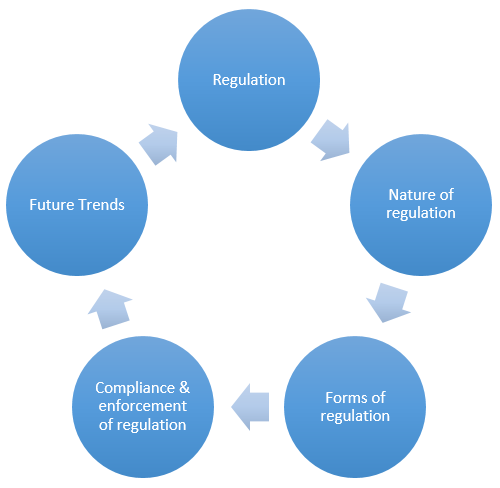Research Library
Regulatory Principles and the Professions
Regulation involves the intentional use of authority by one party to affect behaviour of a different party according to set standards.
Overview
Regulation is an integral part of professional life. Professionals interact with:
- laws that govern behaviour, enforcement agencies that monitor and enforce their compliance;
- markets that trade in professional services; licensing and registration requirements for professional practice;
- social norms of professional life; and
- technology through which professionals conduct their work and/or market what they do.
Regulation of professionals can be local, national, international and/or global in its effect. Regulation can be imposed by both government and government agencies. It may also be adopted by non-government actors including the professions themselves through peer pressure and processes, industry associations and standards organisations. There are also multi-lateral associations such as the World Trade Organisation, technical committees, trading partners and industry supply chains. Financial markets and provider entities have adopted the standards of self-regulatory institutions. Such is the degree of regulation directly or indirectly affecting professional life, that professionals can rightly claim to be ‘living in the age of the regulatory state’.
Regulation, including regulation of professional activities, is an enormous topic influenced by debates in diverse fields. These include law, politics, economics, philosophy, public policy, sociology, psychology and management. This resource guide provides an introduction to the language, concepts and fundamental concerns of regulation by way of four topics:
- The nature of regulation;
- Techniques and instruments of regulation;
- Compliance and enforcement of regulation; and
- Future trends in regulation.

